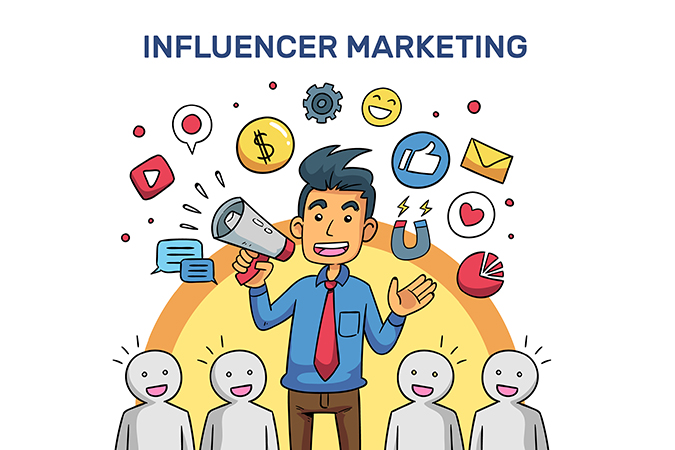In today’s rapidly evolving business landscape, the concept of employee influencers is gaining immense traction. With the rise of social media and digital communication, companies are recognizing the unique potential of their own employees as influential voices within and outside the organization. This strategy not only boosts brand visibility but also enhances employee engagement and trust. In this article, we will explore the multifaceted role of employee influencers and how they are reshaping workplace dynamics.

The Rise of Employee Influencers
The emergence of employee influencers is not a mere trend; it’s a strategic shift in how businesses approach marketing and internal communication. Companies are increasingly leveraging the authentic voices of their employees to reach broader audiences. As outlined in Why Influencer Marketing is Important, the trust factor associated with employees sharing their genuine experiences cannot be overstated.
Why Companies Embrace Employee Influencers
One of the primary reasons companies are embracing employee influencers is the authenticity they bring to the table. In a world where consumers are bombarded with advertising messages, genuine voices stand out. According to Influencer Marketing 101, leveraging employees as influencers can significantly enhance brand credibility.
Benefits of Employee Influencers
Integrating employee influencers into your marketing strategy offers numerous benefits:
1. Enhanced Brand Trust
Employees act as powerful advocates for your brand. Their authentic stories and experiences resonate with audiences on a personal level, fostering trust and loyalty.
2. Increased Engagement
Engaging content shared by employee influencers generates higher levels of interaction, as their peers and networks are more likely to engage with relatable content.
Strategies to Cultivate Employee Influencers
Creating a successful employee influencer program requires thoughtful planning and execution. Here are some strategies to consider:
1. Identify Potential Influencers
Start by identifying employees who are already active on social media and have a genuine passion for your brand. Look for individuals who naturally share company content and engage with their networks positively.
2. Foster an Inclusive Culture
Encourage an inclusive workplace culture where employees feel valued and empowered to share their experiences. This fosters authenticity and enthusiasm among potential influencers.
3. Provide Training and Resources
Equip your employee influencers with the necessary tools and training to effectively represent your brand online. This includes social media guidelines, content creation tips, and access to relevant resources.
Challenges and Solutions
While the benefits of employee influencers are evident, there are potential challenges to consider:
1. Balancing Authenticity with Brand Messaging
Finding the right balance between personal authenticity and aligning with brand messaging can be challenging. Regular communication and feedback loops are essential to address this concern.
2. Managing Diverse Voices
With a diverse group of employee influencers, maintaining consistency in messaging can be complex. Developing clear guidelines and providing regular updates helps mitigate this challenge.
Measuring Success
To gauge the effectiveness of your employee influencer program, consider the following metrics:
1. Engagement Metrics
Track likes, shares, comments, and overall engagement on content shared by employee influencers. This provides insights into the resonance of their messages.
2. Reach and Impressions
Measure the reach and impressions of posts shared by employee influencers to understand the extent of their influence within their networks.
Future of Employee Influencers
The future of employee influencers looks promising as more companies recognize their potential. As discussed in Future of Influencer Marketing, this trend is expected to grow as businesses continue to adapt to the digital landscape.
Conclusion
In conclusion, employee influencers are revolutionizing the way companies communicate and engage with their audiences. By leveraging the authentic voices of employees, businesses can build trust, foster engagement, and ultimately drive success. Embracing this strategy is not just a trend; it’s a powerful tool for navigating the complexities of the modern workplace.

FAQs
1. What are employee influencers?
Employee influencers are employees who use their personal social media platforms to advocate for their company’s brand, products, or services, thereby influencing their audience’s perception.
2. How do employee influencers benefit a company?
They enhance brand trust, increase engagement, and create authentic connections with audiences, driving brand loyalty and visibility.
3. How can companies support employee influencers?
Companies can support them by providing training, resources, and fostering an inclusive culture that encourages authentic sharing.







